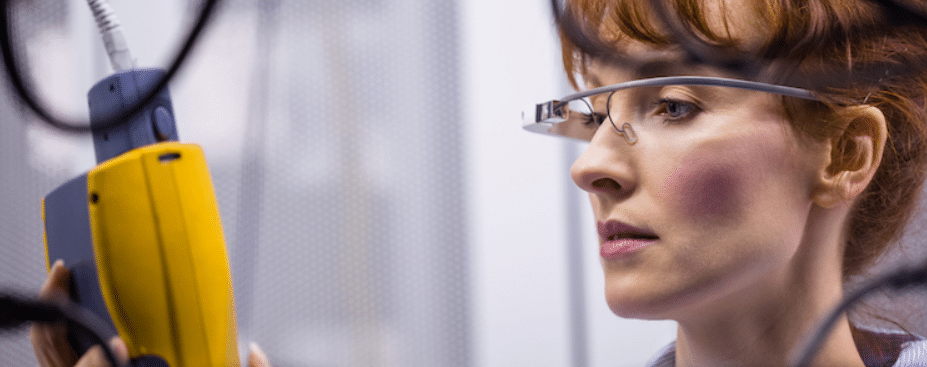
Remember Smart Glasses? They got a lot of publicity a few years ago but failed to take off because the infrastructure wasn’t there yet. They were a bit ahead of their time. It’s worth remembering, though, that the Internet was a disappointment too – until it wasn’t. Today, manufacturers now recognize that Smart Glasses add Informed Reality to the shop floor as a way to add further value to their digital transformation programs.
Over the past few years, the technology landscape in manufacturing has changed dramatically, and Smart Glasses are poised to make a comeback. This is due to advances both in Smart Glasses and the software they interact with, namely the rest of the digital manufacturing ecosystem. Smart Glass manufacturers are coming up with innovative applications. Manufacturing Execution System (MES) vendors are beginning to offer ready-to-go integration. All of this makes it practical, for the first time, to consider including Smart Glasses in your next digital transformation project.

To understand the potential, we should first be clear that Smart Glasses are not a 3D or Augmented Reality solution as you might see in a consumer product commercial. Instead, industrial Smart Glasses provide what we call Informed Reality (IR), which gives a display for workers to see instructions and complete tasks directly through the Smart Glasses. It also allows technicians to collect data using voice recognition or scanning technology built right into the glasses.
Learn more about what iBase-t is doing in smart glass technology.
A New Era for Smart Glasses Technology
The benefits are significant. Since Smart Glasses travel easily with the worker, shop floor personnel can cut down on time spent going back and forth from computer terminals to stay focused on the task at hand. As Smart Glasses add informed reality to what a worker can see, they can help reduce errors and reworks, improve safety performance through hands-free operation, and maintain superior execution compliance.
Smart Glasses can play an important role in driving operational excellence, as explained in this article, Connected Workers Promote Manufacturing Operations Excellence with Smart Glasses
Perhaps most importantly, when new hires and turnover are increasing, Smart Glasses can cut down significantly on training time. When a new hire comes to the floor, Smart Glasses can make the training experience more focused and productive.
A great example of these advantages can be seen at AGCO, the world’s largest manufacturer of agricultural equipment. They switched from tablets to Smart Glasses because, among other reasons, their inspectors were accidentally breaking their tablets while climbing tall machinery for final inspections, losing around two tablets per month in just one plant!
Smart Glasses have empowered AGCO to reduce defects while improving cycle time, compliance, and traceability. They also reduced final inspection time by almost a third, and they now train new operators in just one-fourth the time previously required. They solved their tablet-breaking problem, too.
When you think about it, AGCO’s situation is not that unusual. How many people in a typical factory could do their jobs better if they didn’t have to hold onto a computer device and rely more on verbal commands? Smart glasses aren’t right for every manufacturer, but they’re far more than the gimmick they once seemed to be. With easy connectivity and a growing number of apps, they can deliver real value on the factory floor.





